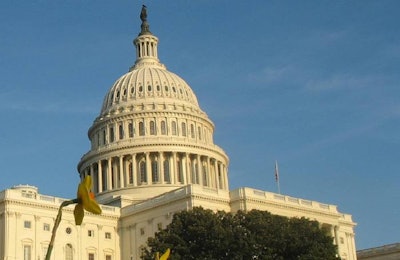
The news that the World Trade Organization (WTO) on December 7 ruled that Canada and Mexico could place more than $1 billion in tariffs on U.S. goods was upsetting.
While the financial ramifications for the U.S. agriculture industry will be tough, Americans cannot be mad at the WTO. They do, however, have a right to be unhappy with their elected officials in Washington, because this could have been avoided.
The tariffs were authorized after the WTO ruled that the U.S. country of origin labeling (COOL) laws regarding the labeling of meats were unfair and inconsistent with free-trade standards. After multiple appeals from the U.S., the WTO issued its final ruling in May.
The initial concept of COOL sounds like a good thing for the U.S. People like to buy local products, and when they see a meat or poultry product labeled that it came from Canada or Mexico, they may put it back in the cooler at the grocery store and reach for something raised and processed in the U.S.
But Mexico and Canada challenged the U.S., and the WTO ruled in their favor. When the WTO handed down its decision, both countries vowed that they would seek permission to place retaliatory tariffs on U.S. goods if COOL wasn’t repealed.
Right then and there, COOL stopped being good for U.S. agriculture, and Congress should have passed legislation to repeal it. In rather short order, the U.S. House of Representatives did so. The Senate, however, failed to reach an agreement and it was put on the back burner. Senate Agriculture Committee Chairman Pat Roberts, R-Kansas, pushed for a similar bill to that one approved by the House. But it didn’t go anywhere. Fellow ag committee member Debbie Stabenow, D-Michigan, proposed another piece of legislation that would make COOL voluntary. It was determined by many that Stabenow’s proposal wouldn’t meet the stipulations needed to satisfy the other countries or the WTO. Now it's six months later and COOL is still in place.
Misplaced priorities in Congress?
Shortly after I learned word that Canada and Mexico can place tariffs in response to COOL, I got a legislative update email from the office of Sen. Jerry Moran, R-Kansas. Initially, I only saw “Senate passes legislation to repeal” in the subject line.
I’ve known Jerry since his days as the Kansas Senate majority leader in the mid-1990s and have long considered him one of the white hats who looks out for the agriculture industry. Based off of that perception, I thought to myself maybe the Senate finally voted to repeal COOL.
But then I read on. It said “Senate passes legislation to repeal Obamacare.” I didn’t feel the need to read any further.
While Moran isn’t the ultimate culprit for this gridlock on COOL, his email sends a clear signal of the problem. The Obamacare debate, which is largely politically-charged, shows how severe the divide is between the two main political parties. That contention is getting in the way of accomplishing things that can help not only the U.S. agriculture sector, but many other U.S. industries as well.
It’s time to listen
For months, the National Pork Producers Council (NPPC) has been urging Congress to act soon to repeal COOL. After the word spread that the WTO had ruled that Canada and Mexico could seek retaliatory tariffs, other groups like the National Chicken Council (NCC) and the American Farm Bureau Federation (AFBF), which had been less active in the COOL debate, issued statements that also called on Congress to repeal those laws.
Those groups’ memberships consist of a lot of registered voters, don’t they?
It’s past time for Congress to open its ears about COOL. But will the senators be able to hear amid all the noise being made about politically-charged election-year topics?


















